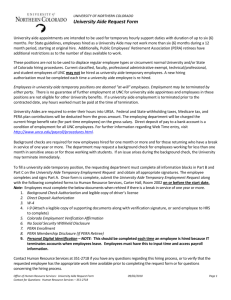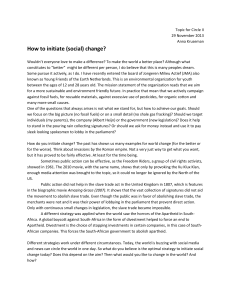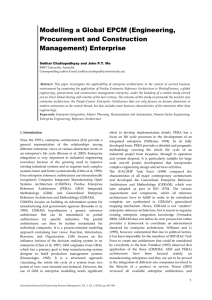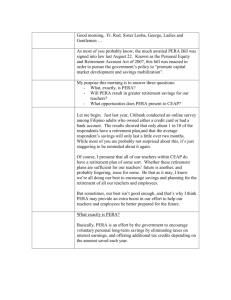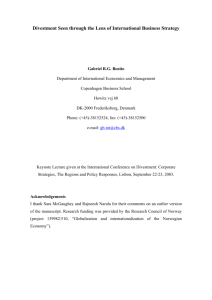statement on divestment
advertisement
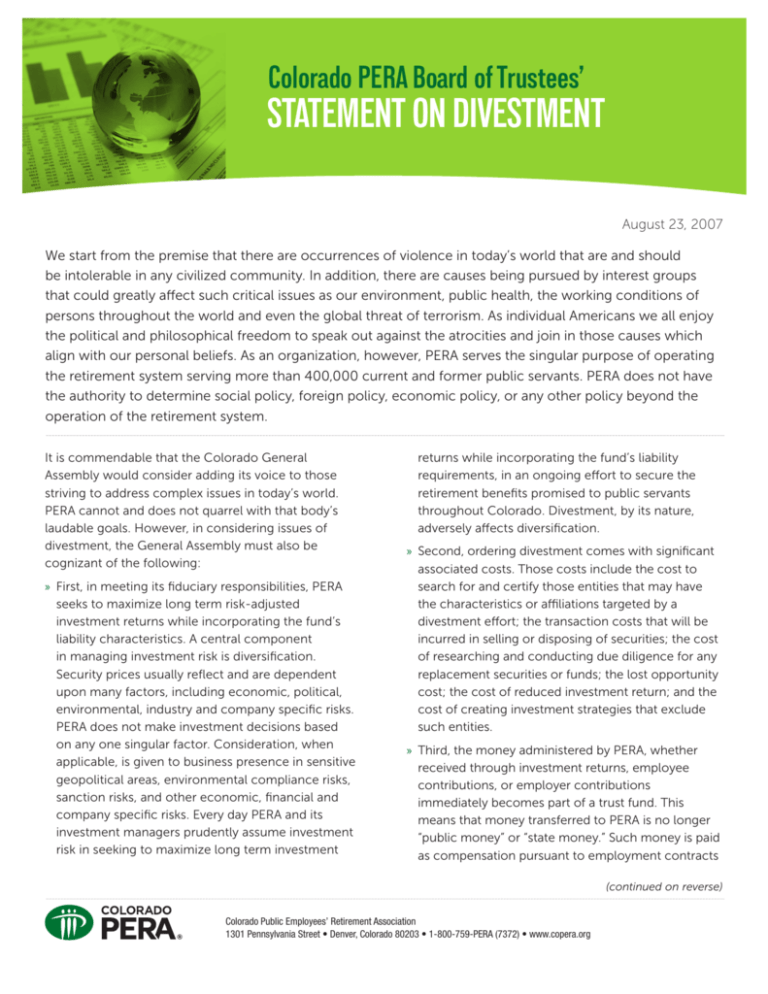
Colorado PERA Board of Trustees’ STATEMENT ON DIVESTMENT August 23, 2007 We start from the premise that there are occurrences of violence in today’s world that are and should be intolerable in any civilized community. In addition, there are causes being pursued by interest groups that could greatly affect such critical issues as our environment, public health, the working conditions of persons throughout the world and even the global threat of terrorism. As individual Americans we all enjoy the political and philosophical freedom to speak out against the atrocities and join in those causes which align with our personal beliefs. As an organization, however, PERA serves the singular purpose of operating the retirement system serving more than 400,000 current and former public servants. PERA does not have the authority to determine social policy, foreign policy, economic policy, or any other policy beyond the operation of the retirement system. It is commendable that the Colorado General Assembly would consider adding its voice to those striving to address complex issues in today’s world. PERA cannot and does not quarrel with that body’s laudable goals. However, in considering issues of divestment, the General Assembly must also be cognizant of the following: »» First, in meeting its fiduciary responsibilities, PERA seeks to maximize long term risk-adjusted investment returns while incorporating the fund’s liability characteristics. A central component in managing investment risk is diversification. Security prices usually reflect and are dependent upon many factors, including economic, political, environmental, industry and company specific risks. PERA does not make investment decisions based on any one singular factor. Consideration, when applicable, is given to business presence in sensitive geopolitical areas, environmental compliance risks, sanction risks, and other economic, financial and company specific risks. Every day PERA and its investment managers prudently assume investment risk in seeking to maximize long term investment returns while incorporating the fund’s liability requirements, in an ongoing effort to secure the retirement benefits promised to public servants throughout Colorado. Divestment, by its nature, adversely affects diversification. »» Second, ordering divestment comes with significant associated costs. Those costs include the cost to search for and certify those entities that may have the characteristics or affiliations targeted by a divestment effort; the transaction costs that will be incurred in selling or disposing of securities; the cost of researching and conducting due diligence for any replacement securities or funds; the lost opportunity cost; the cost of reduced investment return; and the cost of creating investment strategies that exclude such entities. »» Third, the money administered by PERA, whether received through investment returns, employee contributions, or employer contributions immediately becomes part of a trust fund. This means that money transferred to PERA is no longer “public money” or “state money.” Such money is paid as compensation pursuant to employment contracts (continued on reverse) Colorado Public Employees’ Retirement Association 1301 Pennsylvania Street • Denver, Colorado 80203 • 1-800-759-PERA (7372) • www.copera.org Colorado PERA Board of Trustees’ STATEMENT ON DIVESTMENT and agreements between employers and employees and is considered earned at the time of transfer, just as employees who invest in defined contribution retirement plans retain ownership over the funds they have invested. Thus any divestment directive affects money that is not the property of the state or any other public employer, and in the case of the employee’s contributions and investment returns, never was. »» Fourth, the trust fund must be administered by the PERA trustees, who have a fiduciary duty to invest and expend those funds for the sole and exclusive benefit of the members and beneficiaries. Trustees cannot allow financial decisions that would undermine the funded status of the plan. In order to protect and preserve members’ assets, state dollars should be used to reimburse PERA for the initial and ongoing costs and potential losses of any mandated divestment effort. Such an approach would spread the cost to all Colorado taxpayers, and would add the voice of the entire state’s citizenry to the call for action. »» Fifth, the activities of a company that trigger a divestment mandate may constitute a very small fraction of the company’s total global operations. Frequently the companies in question are multinational with primary headquarters in friendly foreign nations and significant operations in the United States, and even here in Colorado. Divestment mandates are designed to impose economic hardship on the subject companies but there is no assurance where the impact of that pressure will be felt. Widespread divestment could (and is intended to) impair the economic resources required for a company to operate, potentially resulting in an array of unintended consequences. The variety of issues facing our world today are not easily separated in to gradations of severity or importance. Consensus as to the priority of these types of issues and the proper recourse are difficult to achieve. As a result, once a divestment mandate is imposed to address one issue, the resulting “slippery slope” makes differentiation among the remaining issues contentious and divisive. In a rare display of virtual unanimity on these types of issues, the General Assembly during the 2007 session adopted HB 07-1184 which imposes targeted divestment from companies with active business operations in the Sudan. The rationale for this step, unique in PERA’s 76-year history, was the first recognized campaign of genocide in the new millennium. The Governor, the General Assembly and the PERA Board of Trustees were in agreement that the standard for triggering divestment is genocide. The passage of this landmark legislation in Colorado has sent a strong message to the international business community and the Sudanese government. Adoption of additional divestment mandates which do not meet the genocide standard adopted in HB 07-1184 will most certainly detract from the message to Sudan and the offending companies. For the above reasons, PERA will generally oppose any mandated divestment effort that does not meet the genocide criteria and that fails to account for these stated concerns.




